At Skylamp Solar, we understand that buying a solar PV system is a major investment.
So, when they break down or don't run as efficiently as they should, it can be extremely frustrating. Understandably, you want your solar panel system up and running as soon as possible and working at maximum efficiency.
The Skylamp Solar expert solar PV repair team in Winchester can assist you in these cases. With an excellent working knowledge of the subject, we can have your solar panels generating electricity again very soon.
Read on to discover what can go wrong, why it does so, and what Skylamp Solar will do to put it right.
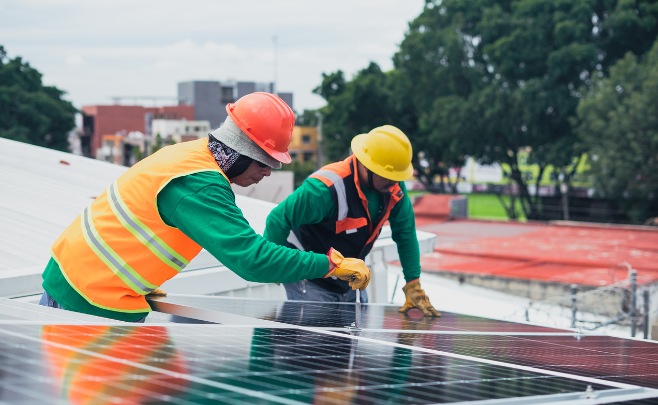
Most solar panels are sold with a long warranty, usually 25 years, which is a sign of their quality and robust nature. As they have few moving parts, there's not much wear and tear to worry about.
Even so, there are several issues to watch out for, and it's vital that these are identified and fixed as soon as possible. One faulty panel can affect the whole system, causing a significant drop in electricity generation.
These are the problems to be aware of:
Crows, gulls and pigeons, etc. will try to nest between your panels and the roof space. An accumulation of nesting material, not to mention the birds constantly landing on your solar panels, can lead to system issues. An excessive amount of bird droppings on the panels will also be problematic (see below).
The best solution is to remove all of the debris and install mesh or spikes to discourage the birds from nesting. We posted an article recently about this entitled “how much does it cost to pigeon proof a roof?”
These are small areas of the panels that become overloaded and start to heat up as a result. They can be caused by manufacturing faults, like a badly-soldered connection or a structural defect.
Also, if your solar panels are partially shaded or have become extremely dirty, this may lead to the appearance of hot spots. Bird droppings are one of the worst offenders, along with fallen leaves.
Hot spots often result in a short circuit, which can damage your solar PV system, or drastically reduce its efficiency.
This is a difficult problem to identify, and it almost always takes an expert eye to do so.
You can reduce the risk by ensuring that your solar panels aren't shaded and that they are cleaned fairly regularly.
This problem is associated with crystalline silicon PV panels, rather than the thin-film silicon variety.
There are two reasons for miro-cracks; they either happen during production, or they're a result of mishandling during transportation and when they're being installed.
They're called micro-cracks for a reason - they're extremely small! Your system may not be affected by these and can even run very efficiently. Eventually, however, the cracks will grow bigger and start to impact the efficiency of the solar cells.
Sadly, once this problem has been diagnosed, replacement is the only option.
These two go side by side and can be treated as a single problem.
First, the sealed surface (encapsulant) of the panel lifts, allowing air and moisture inside, which is bad news.
As moisture makes its way through the gaps it causes metal parts to rust and plays havoc with the electrics as it short-circuits.
This problem is more likely to be found in cheaply or poorly made solar panels, or where a low-grade laminator has been used. However, extreme heat can also cause delamination, although this is generally restricted to tropical locations.
Delamination is most likely to start in one corner and work its way across the panel. If we can catch it before it does any damage, we may be able to fix it. As most solar panels are situated on a roof, you are unlikely to notice this problem until it's too late.
This highlights two issues: the need for regular maintenance, and the need to monitor your solar system carefully to identify any potential problems.
No, this isn't actually caused by snails! This problem gets its name from its appearance; silvery snaking lines across the surface of the panel. They typically appear after several years, either around the edges or over micro-cracks. Essentially, this is due to oxidation beneath the surface.
Again, the issue is mostly found in poor-quality solar PV modules and is caused by microscopic cracks or sub-standard silver paste used in the manufacturing process.
Snail trails (also called worm marks) aren't a serious problem in themselves and shouldn't affect your system's efficiency. Even so, it's best to have them checked out.
This is a technical issue that can reduce the lifespan of your entire solar PV system.
Solar panels must be earthed for safety, and occasionally there's a difference between the voltage generated by the system and the earthing.
PID leads to a partial voltage discharge to the main circuit, called stray circuits, resulting in a severe loss of output and efficiency.
This is another problem that can't be detected by the naked eye. The best way to check for this is to run PID tests, which can only be performed by professionals like Skylamp Solar.
If we detect any signs of steady deterioration in output due to PID, we use several methods to fix the problem, including:
Some of these measures can be introduced proactively to prevent solar PV systems from deteriorating, and it can be worth investing in these.
Loose connections can cause serious issues, and oxidation or rust can also mess with the wiring and make it less efficient. The Skylamp Solar solar panel engineers in Winchester know exactly what to look for and how to resolve the problem.
As with any electrical wiring, it's not wise to try to fix this yourself unless you're a qualified electrician.
Although this is damage as such, it can lead to a loss of output and needs attention.
Heavily soiled solar panels will eventually become less efficient, which will reduce the amount of usable electricity. If you are selling power back to the grid, you won't be getting as much, making your unit less cost-effective.
Also, during winter when there's less sunlight, you may not even have enough power to run appliances in your home and will need to rely on your energy supplier to make up the balance.
For this reason, solar panel cleaning is recommended every once in a while to keep them free from dirt and debris. Although they are described as self-cleaning, this really only refers to the fact that water doesn't adhere to the surface. The aim is that rainfall will wash away dust and dirt, but this is rarely the case.
Aside from these issues, one of the most frequent problems relating to solar panels is when they are damaged by impact, usually from a falling tree branch. Depending on the extent of the damage, we may have to replace a panel that's too badly damaged.
This is the heart of the whole solar PV system, or more accurately, the brain. It converts solar power into usable electricity and allows you to send surplus energy to the grid.
The entire system is controlled and monitored from here, and this is a good place for discovering any problems with the energy output, flow and efficiency. Most will flash fault codes to let you know there's a problem, which can be helpful.
Unfortunately, there are also a few inverter faults that you might encounter:
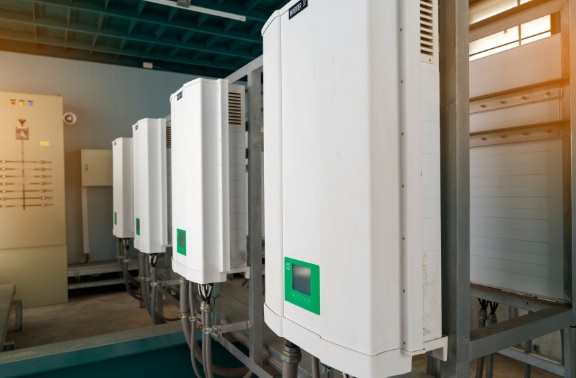
Like all electrical equipment, the inverter is sensitive to extremes of temperature. If the unit becomes too hot there will be a drastic reduction in output or even a complete system failure.
If your inverter overheats, we would check to see if it has adequate ventilation and suggest installing dust filters that will improve airflow.
This module helps maximise the performance of solar systems and make sure they are working correctly. If you notice any issues, it may be that your solar panel system isn't performing well, or the MPPT module algorithm needs adjusting.
A badly-fitted solar inverter will soon start to malfunction. Whether it's been programmed incorrectly or the connections are wrong, it all impacts negatively on the performance of your solar power system.
The best way to avoid this is to only use a reputable and accredited solar panel installation company, like Skylamp Solar.
If you suspect that your inverter has been installed badly, we can check this for you and put it right.
It's a fact that solar panels outlast inverters - at least for now. They endure a heavy electric load throughout their lives, and will eventually give up. It's common for customers to replace their solar inverter at least once during the lifespan of their panels.
This gadget records precisely how much electricity is generated by solar PV systems.
Like the inverter, it's a good way of checking for faults. Most have a red light by the display panel (if the display is blank then there's a problem with the power supply) and this flashes when the solar panels are working correctly. The faster it flashes, the more power generation is taking place.
However, if the light is permanently on, there is an issue. Also, if the system isn't generating as much energy as suggested on your estimated annual generation figure, then it needs attention.
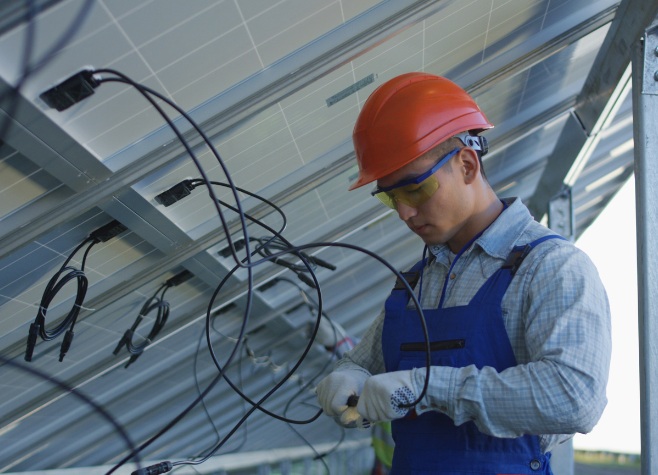
After making such a large investment in your solar system, it's clear that you want to keep maintenance and repair costs down as much as possible.
The best way to do this is to have the system fitted by a company you can trust (like Skylamp Solar). You could also benefit from regular solar panel maintenance or an annual service.
As for the cost of repairs, it's impossible to offer a figure as each fault will need careful inspection to determine the best solution. Please contact us if you need further guidance on this.
If you do need a new inverter, this will cost between £1,000 and £6,000 depending on the size and type.
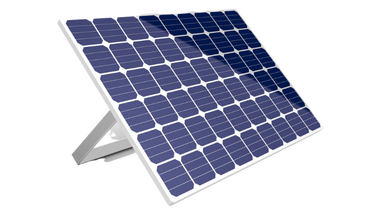
Solar energy already plays a big role in the switch to renewable energy in Winchester, and this is set to increase in the future.
Solar PV systems are at the heart of this, and it pays to look after your investment, particularly during this time of uncertainty and upheaval around ever-rising energy prices.
That means keeping an eye out for problems and resolving them proactively rather than reactively; it makes sense to maintain solar panels regularly.
Skylamp Solar can help you with solar PV repairs in Winchester and solar panel cleaning services. We offer reasonably priced solar PV maintenance to keep your system running cost-effectively and help you get the best return on your investment.
Get in touch with our Winchester team today to discover more about our solar panel maintenance service and see how we can keep your solar panels generating clean energy for longer.
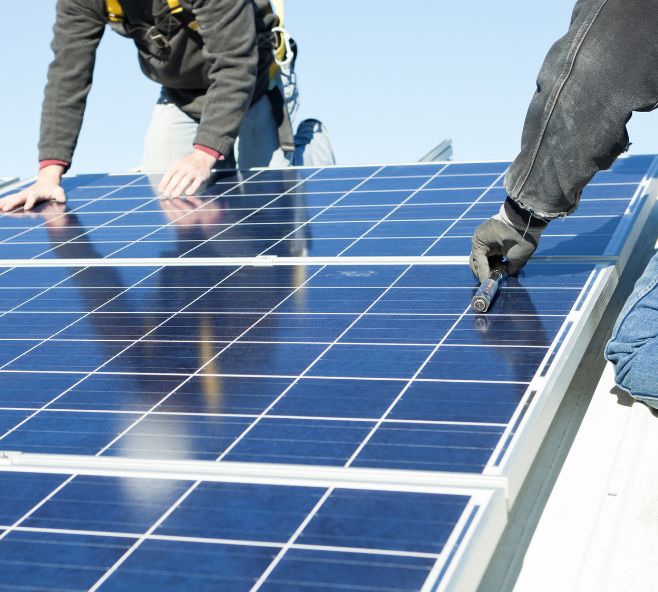
When an inverter stops charging it is most often the battery that is faulty and possibly dead and in need of replacement.
Most solar inverters need to be replaced at around 10-12 years after installation depending on the brand yet some can fail much earlier.
The most common solar panel problem is hot spots, a part of the panel gets hotter than the rest. If the power inside cannot get through the pathways it gets hotter.
Potential induced PID caused by leaks down through the ground earth, hot spots caused by faulty cells and pathways, cracks within the cells resulting in a poor energy conversion rate.